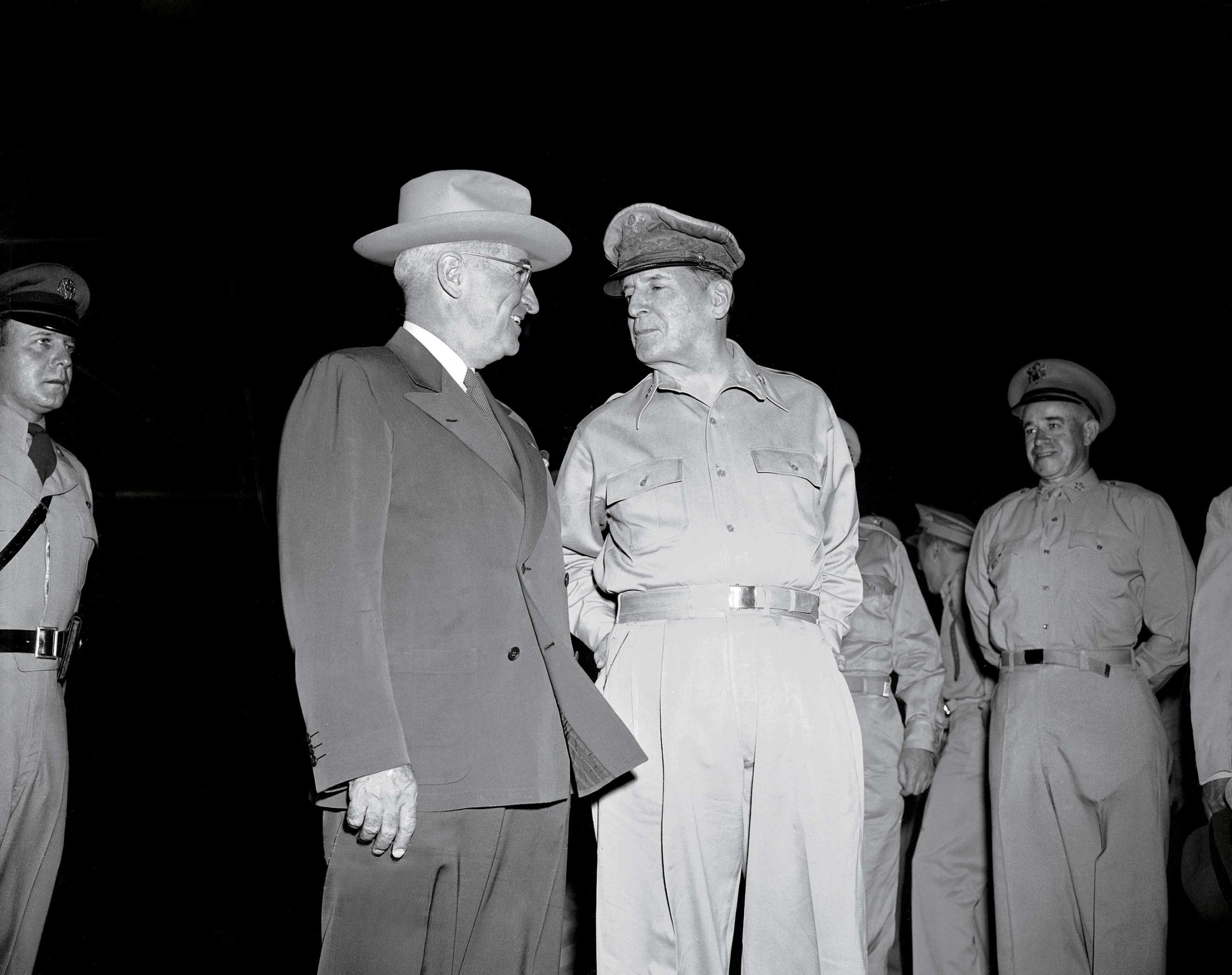
Douglas MacArthur certainly had a way with Commanders in Chief. Long before he ran afoul of Harry Truman near the end of the Korean War, the self-glorifying Army general was ignoring the orders of President Herbert Hoover. As a young Army chief of staff in 1932, MacArthur, against the explicit instructions of Hoover, took it upon himself to not just disperse a crowd as Hoover had asked but also completely clear Washington of the ragtag “bonus army,” penniless World War I veterans (and their wives and children) who had camped on the banks of the Anacostia River while pleading with Congress to pay out their military benefits early.
What should have been a minor test of crowd control turned, in MacArthur’s hands, into a fiasco. Several hundred troops under Mac’s command torched the camp, killing an infant and bayoneting a boy who was chasing a rabbit. Photographers caught it all. The public recoiled in horror, and Hoover’s shot at re-election, never great to begin with, vanished. In a conversation with Felix Frankfurter, Hoover’s opponent said he spied his chance in MacArthur’s overreach. “Well, Felix,” Franklin Roosevelt said, “this will elect me.” The incident may help explain why FDR later mused that MacArthur was the most dangerous man in America.
That truth would not be universally acknowledged until the early 1950s, when MacArthur, then supreme commander of the allied forces in Korea, ignored Truman’s clearly stated war aims and took it upon himself to campaign for a preemptive invasion of “Red China,” as the People’s Republic of China was called in those days. Such a scheme was suicidal, not to mention unnecessary, but those facts did not deter MacArthur from pressing the cause for nearly a year. Even after being warned by just about everyone to pipe down, the general kept at it, convinced he was better equipped to decide such things than the civilians who then, as now, are elected to run the military. So Truman relieved him. “Military commanders must be governed by the politics and directives issued to them,” Truman said. It is a lesson that still reverberates in the Pentagon.
All this is finely explained and explored in H.W. Brands’ new book, The General vs. the President: MacArthur and Truman at the Brink of Nuclear War. He spikes the shadowboxing between the two men with vivid dispatches from the battlefield that give his tale a get-along kick. The volume is timely too, and not only because the U.S. still has more than 28,000 troops in South Korea more than 60 years after the conflict. No matter whether Hillary Clinton or Donald Trump is sworn in on Jan. 20, a nuclear-capable North Korea will be the most vexing foreign policy problem awaiting the winner when the Inauguration parade ends.
Brands, a prodigious author and history professor at the University of Texas at Austin, allows neither man to get away clean. MacArthur is revealed to be charming, fearless–and terrifying. Even after Truman dethrones him, MacArthur tries to sell President-elect Dwight Eisenhower on a plan to halt the communists by spreading nuclear-waste products across the Korean Peninsula. (Eisenhower, who in one of history’s wonderful coincidences had worked as MacArthur’s adjutant during the disastrous Battle of Anacostia 20 years earlier, knew where to file that idea.) Truman, meanwhile, comes off as a more hesitant, uneven Commander in Chief than his popular myth suggests. It takes Truman far too long to dump MacArthur, but it’s hard not to root for the former Kansas City haberdasher, whose years as an artilleryman in WW I taught him that everyone has to follow orders sometimes. Including generals.
The General vs. the President: MacArthur and Truman at the Brink of Nuclear War ($22.53, Amazon)
More Must-Reads from TIME
- Donald Trump Is TIME's 2024 Person of the Year
- Why We Chose Trump as Person of the Year
- Is Intermittent Fasting Good or Bad for You?
- The 100 Must-Read Books of 2024
- The 20 Best Christmas TV Episodes
- Column: If Optimism Feels Ridiculous Now, Try Hope
- The Future of Climate Action Is Trade Policy
- Merle Bombardieri Is Helping People Make the Baby Decision
Contact us at letters@time.com